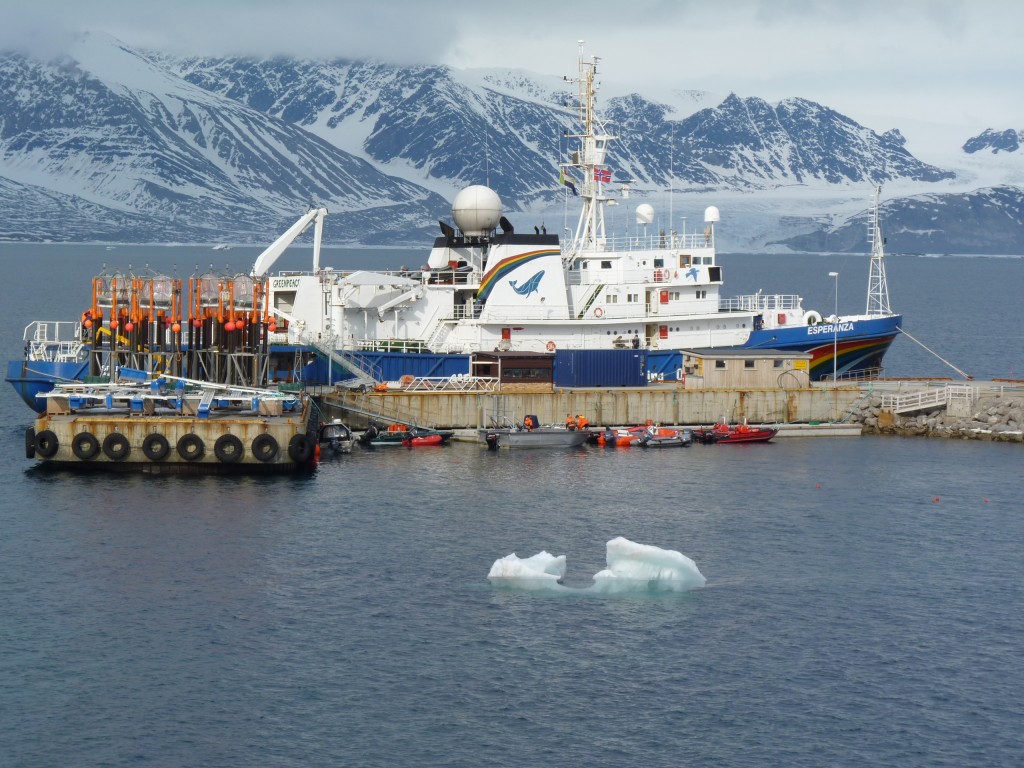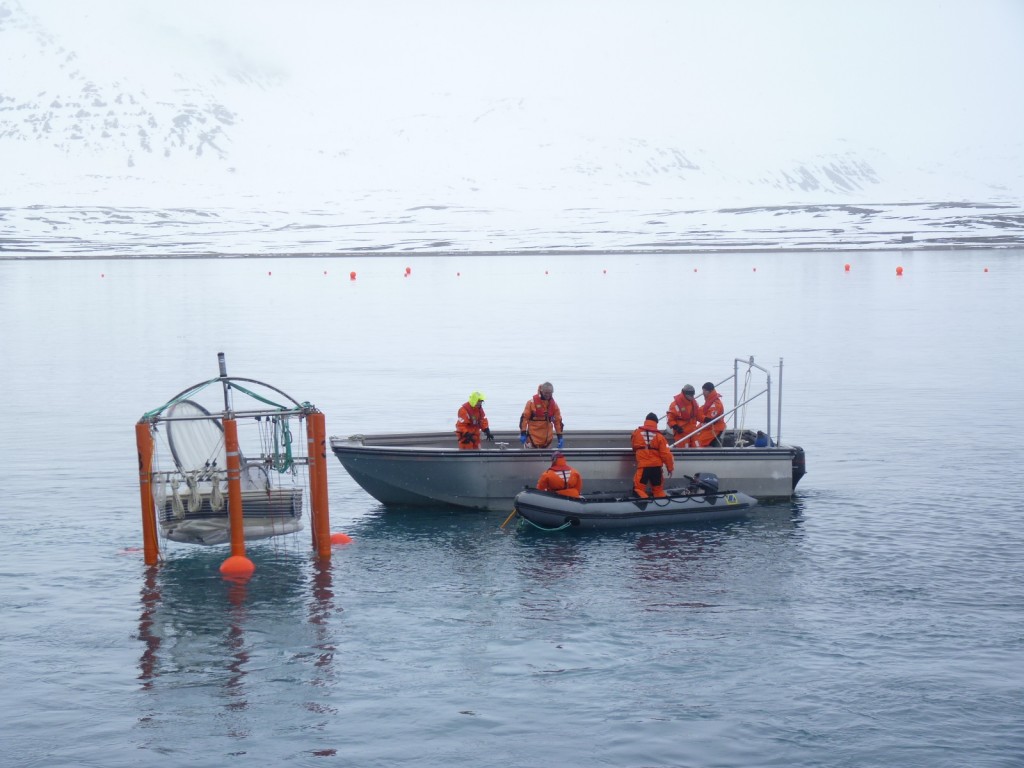Polar regions hit by ocean acidification

In 2010 I watched the start of the first in situ ocean acidification experiments off the coast at Ny Alesund, Spitsbergen, as part of the EU’s EPOCA project. Mesocosms, or giant test-tubes, were being taken out to sea by the Greenpeace ship the Esperanza. (Pic: Irene Quaile)
Did you notice much about the problem of CO2 in the oceans in the (already minimal in most places) coverage of the Warsaw climate conference? A summary of the report published recently by the International Programme on the State of the Oceans (IPSO) was presented at the meeting to draw attention to the dangers posed by acidification for ecosystems, humankind and, in form of a feedback effect, for the climate warming which is causing it in the first place. If that sounds complicated, but intriguing enough to warrant further interest, you might want to listen to an interview I recorded this week with Alex Rogers. He is a Professor of Conservation Biology at the Dept. of Zoology and a Fellow of Somerville College, University of Oxford. Amongst his many other titles, he’s the Scientific Director of IPSO. He told me it was a “fascinating coincidence” that the report was published just after the latest IPCC report, which noted, amongst other things, that atmospheric temperatures hadn’t risen as much over the last ten years or so as had been expected. One main reason suggested is that the excess heat is being taken up by the ocean, especially the deep ocean. And that fits perfectly with the findings of the big ocean survey and collation of data, says Prof. Rogers.
I also talked to Ulf Riebesell from the Helmholtz Institute for Ocean Research in Kiel, Germany, a lead author of the report and the scientist who has been in charge of the in situ acidification experiments in the Arctic .You might also enjoy in my report from that venture.
That interview is in German, so I’m not putting it up here, but the content will be flowing into an article for the DW website very soon. Meanwhile, here’s Professor Rogers:
















